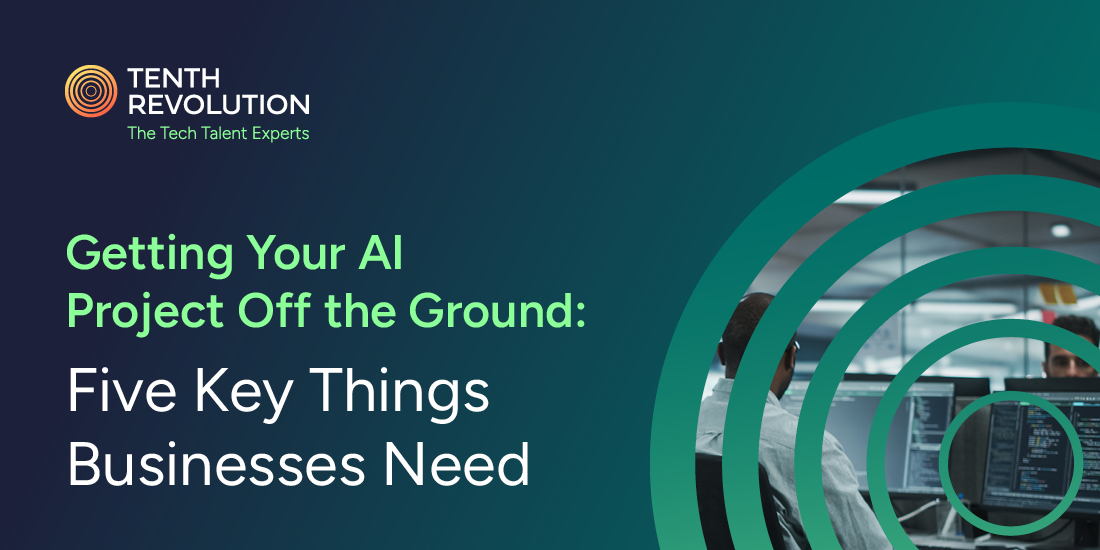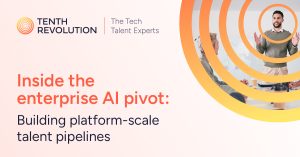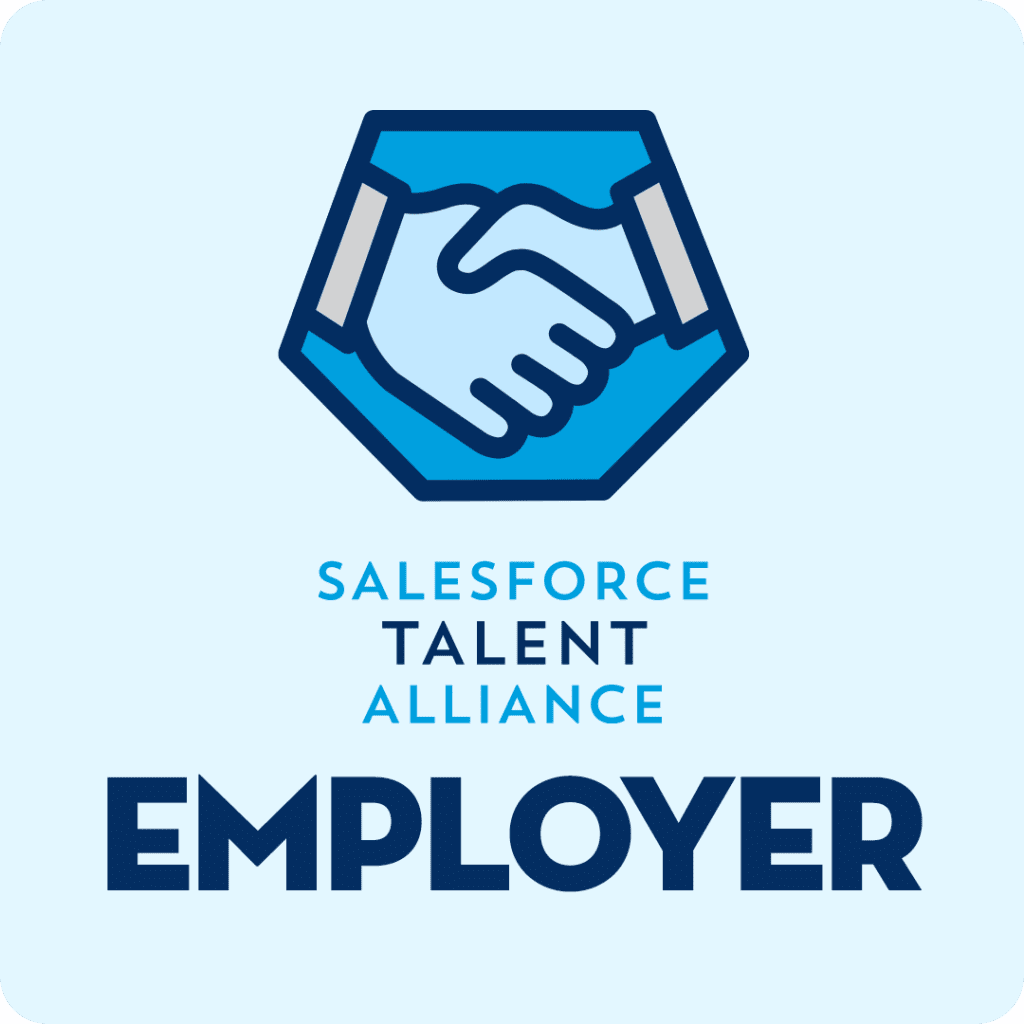Artificial Intelligence is no longer a futuristic concept, it’s a transformative force reshaping industries across the globe. From streamlining operations to enhancing customer experiences and making data-driven decisions, the technology is now at the forefront of innovation rather than a spark in the imagination of science fiction writers.
But while the potential is clear, how can businesses successfully launch and scale their AI initiatives? Getting an AI project off the ground isn’t as simple as flipping a switch—it requires careful planning, the right resources, and a clear understanding of the technical and business challenges.
In this blog, we’ll explore the five key things businesses need to get their AI projects up and running. Whether you’re a startup, a mid-sized company, or an established enterprise, understanding these crucial elements will help you pave the way for AI success.
Explore our industry-leading Careers and Hiring Guides
1. A Clear Vision and Strategy
Before you dive into any technical details, you need a solid vision and strategy for your AI project. What are the key business problems you’re trying to solve? Are you looking to improve customer service, optimize supply chains, or gain insights from data that were previously out of reach?
The importance of a clear strategy cannot be overstated. Without it, your AI project risks becoming an unorganized, ineffective venture that consumes resources without providing tangible value. Take time to define the project’s objectives, its scope, and how success will be measured—this should include a roadmap that outlines both short-term goals (like identifying use cases and gathering data) and long-term ambitions (such as full-scale AI integration into business processes).
Additionally, you should consider the potential ROI of AI. With so many AI tools and platforms available, it’s easy to get overwhelmed. Focus on understanding what kind of value AI can bring to your organization and how it aligns with your overall business goals. For example, will AI help you automate repetitive tasks, or will it enable more personalized customer experiences? Understanding this will help you determine where to invest your resources, how to evaluate progress, and ensure you avoid falling into the trap of it being a vanity project.
2. Data, Data, and More Data
One of the most critical elements of any successful AI project is data. This is how AI models learn and make decisions , so having access to large amounts of high-quality, relevant data is essential. Think of it as the fuel for your AI engine—without it, the system can’t run.
The first step is to identify the types of data that are most useful for your project. Are you working with customer interaction data, production line data, or sensor data from equipment? Once you have the right information, it’s important to ensure your data is clean, organized, and easily accessible. If it’s poor quality or disorganized, this can significantly hinder the performance of your AI models and in some cases actually work against it to create something that’s counter-productive.
It’s also worth mentioning that the best AI models often require structured data, such as spreadsheets or databases, as well as unstructured data, like text, images, and videos. If your company isn’t already gathering the necessary data, or if it’s scattered across different departments, you’ll need to invest time and effort into gathering, consolidating, and organizing your data. It might require partnerships with data vendors or tools that can help you extract and process data from disparate sources but again, a clear strategy will help map this out for you.
3. The Right Specialist Staff
Once you’ve laid the groundwork with strategy and data, it’s time to assemble the right team. AI projects often require a mix of technical and non-technical professionals and while this isn’t necessarily an exhaustive list, these are some of the roles you’ll need to bring your vision to life:
- AI/ML Engineers: These are the individuals who build and deploy machine learning models. Their expertise is essential for training your AI algorithms and ensuring they work effectively.
- Data Scientists: These professionals analyze data and generate insights that can inform business decisions. They also play a crucial role in developing and refining AI models.
- Data Engineers: Data engineers focus on creating systems and infrastructure that enable the collection, cleaning, and processing of data. They make sure that your data is in the right format and accessible to those who need it.
- Product Managers: To bridge the gap between technical teams and business needs, a product manager with knowledge of AI can be invaluable. They ensure that the project aligns with business goals and priorities.
- AI Architects: These are the visionaries who design the AI systems. They ensure that the AI technology stack aligns with the company’s infrastructure and goals.
It’s worth noting that these roles can be made up of a combination of permanent and contract resource. Permanent hires bring long-term stability and knowledge retention, while a consultant can provide specialized skills or fill resource gaps during the project’s initial stages, or when high-demand skills are temporarily needed.
Hiring the right talent at the right time can be a game-changer for your AI project, which is why a recruitment partner that specializes in these roles can also be a vital part of your AI roadmap. As well as having access to a ready-made pool of highly skilled professionals, you’ll be able to scale up (and down) at speed depending on your requirements, saving time and money in the process.
4. Tools, Platforms, and Technology Stack
Building an AI project requires the right technical infrastructure and tools. Whether you’re using cloud-based AI services or creating custom solutions in-house, selecting the right platforms and technologies is vital to the success of your initiative.
Platforms like Google Cloud, AWS, and Microsoft Azure offer a wide range of tools, including pre-built models, natural language processing services, and machine learning frameworks. These tools can speed up the development process and help you get results faster. If you’re looking for more flexibility and control, you may opt to build your own systems using open-source libraries like TensorFlow, PyTorch, or Scikit-learn.
Consider your organization’s existing tech stack when making decisions about AI platforms. Will the new system need to integrate with legacy systems? Are you equipped to handle the increased data storage and computational power required by AI? Is your team skilled in the stack required to make your AI project a success, or will you require short-term help or even someone to help them cross-train into another technology? Getting your infrastructure right from the outset ensures smoother operations down the line.
5. A Culture of Collaboration and Adaptability
Finally, for any AI initiative to succeed, your organization needs to foster a culture of collaboration and adaptability. AI projects often require a mindset shift within the company, particularly when it comes to decision-making, data usage, and the involvement of multiple departments. Breaking down silos between data scientists, business leaders, and IT teams is essential for maximizing the potential of the technology and to avoid it from becoming a bloated project that serves little real-world function.
Furthermore, as the technology continues to evolve at a lightning pace, maintaining a culture that embraces change and innovation is crucial. AI models require constant evaluation and fine-tuning to remain effective. Regular feedback loops, knowledge sharing, and ongoing training can help employees stay ahead of the curve and feel empowered to contribute to the success of the project.
Launching an AI project is an exciting but complex endeavor. By ensuring you have a clear strategy, high-quality data, the right specialist staff, the proper technology stack, and a collaborative culture, you’ll be setting the stage for success as you innovate within your own organization. While it might seem like a lot to tackle, taking a step-by-step approach and investing in the right resources can make all the difference. The future of AI is bright—let’s make sure your business is ready to take advantage of it.











